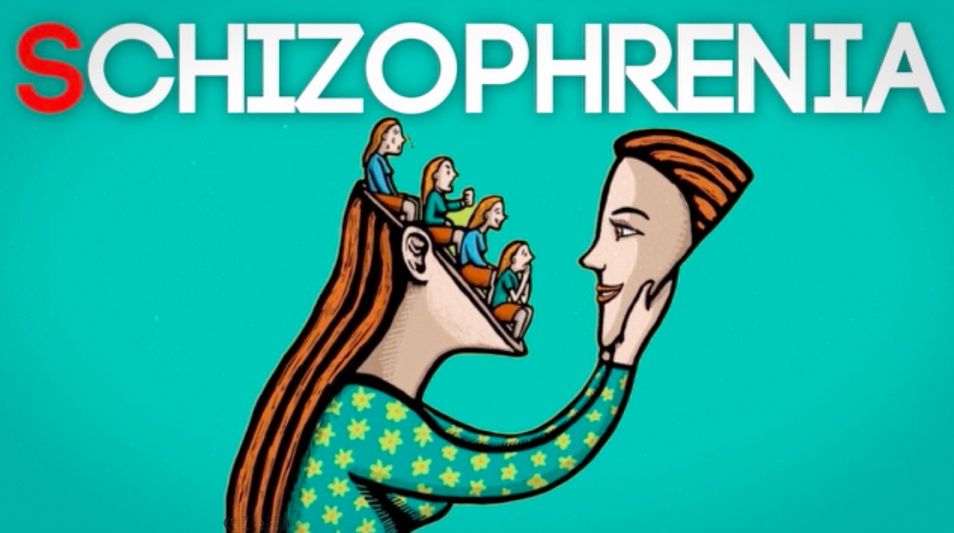SCHIZOPHRENIA (a long-term mental disorder) Part-2
SCHIZOPHRENIA (a long-term mental disorder) Part-2

Positive symptoms - Disorders of form & content of thoughts
Neologism : new words without meaning
Verbigeration : words and statements repeated again and again
Thought broadcasting
Thought insertion
Thought withdrawal
Ecolalia : repeating doctors statements
Neologisms:
New, seemingly meaningless words that are formed by combining words and only have meaning to the person using them.
Example: I like to read books. I read a book about a gilzbok…but they have nothing to interest me.. .It is just an amudence all over again”
Verbigeration / Perseveration
The repeating of words and statements again and again.
Example:
It’s time for supper, supper, supper.
Supper is on the supper room.
Positive symptoms - Disorders of behaviour
Stereotype : Repetitive patterns of movement or walking in circle or repetitive performance of strange gestures…
Echopraxia : Imitating gestures and movements of the examining doctor
Positive symptoms – Loss of interest of self - care
Odd and strange appearance
Inappropriate clothing and poor personal hygiene
Negative symptoms
Disturbances in mood
Disturbances in behaviour
Negative symptoms - Disturbances in mood
Affective flattening : Decreased expression of emotion
Alogia : “lack of word” i.e. poverty of speech
Asociality : few friends, activities, interests impaired
Anhedonia : inability to enjoy anything
Suicide : 30% attempt, 10% successful
Schizophrenia
- Some descriptions of patients
Example : Hallucinations
“I had one particular friend. I called him the ‘Controller’, only I could see him and hear him, but no one else could.
He would punish me if I did something he didn't like. He spent a lot of time yelling at me and making me feel wicked. I didn't know how to stop him from screaming at me and ruling my existence. It got to the point where I couldn't decipher reality from what the ‘Controller’ was screaming.”
Support for Patients
Care of persons with schizophrenia can be provided at community level & with active family involvement.
Important people who can support to help the patients come out of the disorder.
Family
Professional residential or day program caregivers
Friends or room mates
Professional case managers
Issue :
People with schizophrenia often resist treatment , believing that their delusions or hallucinations are real & Psychiatric help is not required .
Help
If a crisis occurs, family & friends may need to take action to keep their loved one safe .
Issue :
A Person with mental illness who does not want treatment may hide strange behavior or ideas from a professional
Help
Family members & friends should ask to speak privately with the person conducting the patient's examination & explain what has been happening at home.
The Professional will then be able to question the patient & hear the patient's distorted thinking for themselves.
Should ensure that the person with Schizophrenia continue to get treatment
It is important to ensure that the patient take their medication after they leave the hospital also.
If the patients stop taking their medication or stop going for follow-up appointments, their symptoms will return.
If these symptoms become severe, they may become unable to care for their own basic needs for food, clothing, shelter.
They may neglect personal hygiene
Family & friends can also help patients set realistic goals & regain their ability to function in the world.
Each step toward these goals should be small enough to be attainable,& the patient should pursue them in an atmosphere of support.
People with mental illness who are pressured & criticized usually regress & their symptoms worsen.
Telling them what they are doing right is the best way to help them move forward.
How to respond when someone with schizophrenia makes statements that are strange or clearly false ???
Because these bizarre beliefs or hallucinations are real to the patient, it will not be useful to say they are wrong or imaginary.
Going along with the delusions will not be helpful , either
It is best to calmly say that you see things differently than the patient does
But that you acknowledge that everyone has the right to see things in his or her own way .